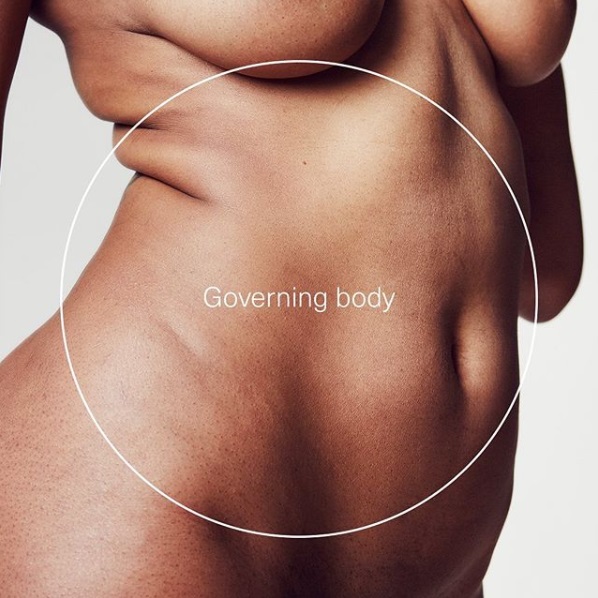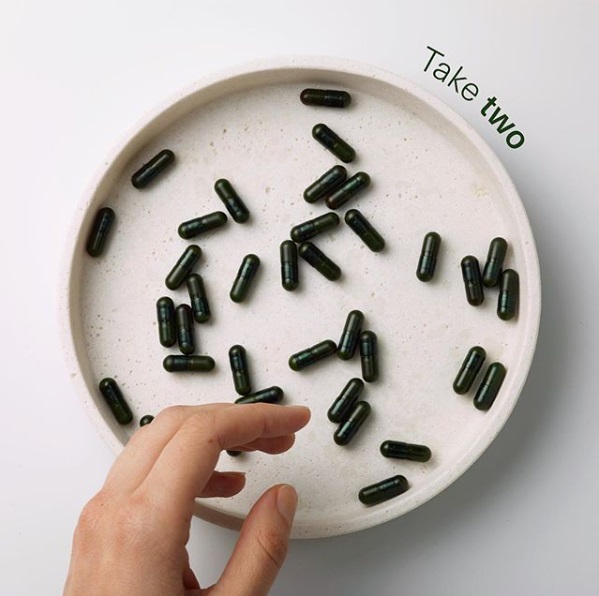
This article is created in partnership with Seed®—they’re dedicated to the health of the microbial world within and around us, and we are honored to work with them. ~ ed.
Everyone’s gone gut-crazy.
As we become wise to the far-reaching impact our gut health has on us, so the shelves overflow with every gut healing solution under the sun.
Kefir, kombucha, and kimchi are all on the hip-to-your-gut-health menu, along with an ever-increasing number of probiotic supplements, all claiming a higher CFU (that number with a lot of 0s) and better “gut colonizing” power than the last.
As a health-conscious woman in my 30s, I’m pretty typical in having tried a wide range of these products in my quest for optimal well-being. But I haven’t ever been sure of what I was really taking or how it was going to benefit my body, because nobody ever bothered to explain it to me properly…until recently.
While the general trend of “wellness”—of which gut mania is a part—has brought us closer to our bodies and our health, it’s also created a wave of misleading messaging, questionable products, and hyperbolic claims that have had a broken telephone effect when it comes to what science actually says.
So what’s a health-conscious person to do? Get some reliable information and a gut health supporting product that’s actually supported by scientific research…
Check out Seed’s science-backed Daily Synbiotic* >>
*Get 20% off your first month with code: ElephantJournal
Returning to science
Seed is not your run-of-the-mill probiotics company. They’re an ecosystem of scientists, doctors, and technologists on a mission to clear public confusion and develop truly next-generation probiotics.
As far as precision, testing, efficacy, and education in the industry, they’re in a league of their own—developing some of the most sophisticated probiotics available, while making the science behind beneficial bacteria accessible, easily understandable, and surprisingly interesting for the average person.
After taking their Daily Synbiotic for the past month, I am certain it is hands down the best probiotic I’ve ever tried—and I have tried a lot of them. Three things stuck out to me the most:
First: It’s not just a probiotic, it’s a synbiotic. Synbiotic = probiotics + prebiotics. If you don’t know already, probiotics are live microorganisms that, when taken in adequate doses, are proven (in humans) to deliver positive benefits to our health. Prebiotics are ingredients that fuel these and other beneficial microbes to do their jobs well.
Second: is it just me or does every probiotic in history send your gut for a loop, at least in the beginning? Not Seed—while an acclimation period is always normal, their ViaCapTM technology is designed to release the probiotics further in your digestive tract, minimize discomfort, and maximize viability and heat stability. Translation: their probiotics make it to where they matter most—the colon.
Third: I have not felt this vibrant (physically and mentally) in a while, and I am pretty healthy and fit on an average day. Most noticeably: my skin is clearer and brighter, I have more energy, and my usual slight belly bloat, especially after meals, has subsided.
Because Seed are educators as much as they are probiotics innovators, I also finally understand exactly why I’m feeling this way.
So, because facts matter, especially when it comes to our personal health, here are five things Seed’s scientists want us to know about probiotics and our gut health:
1. It’s not just your gut that gets a boost when you take a good probiotic + prebiotic.
Your body is complex and interconnected, and the gastrointestinal system sits at the core of it all. It’s connected to and influences everything from metabolism and immune function to heart, skin, cognitive/emotional, and reproductive health.
So, while improvements in gut health are often the most immediate, localized, and evident (with digestion often improved in as little as 24-48 hours), probiotics can actually have powerful effects across the entire body, far beyond your digestive tract.
This perfectly coincides with my experience of taking a synbiotic with clinically-validated strains like the Daily Synbiotic. Not only does my gut feel more settled (and it was doing pretty well to begin with), but I feel viscerally stronger and healthier, and everyone’s complimenting me on my clear skin.
The Seed team are also quick to point out that their Daily Synbiotic is not a silver bullet: diet, nutrition, exercise, quality sleep, and other healthy lifestyle habits are equally important.
Think of probiotics as another tool to preventively and proactively care for your whole self.

Shop Seed’s Daily Synbiotic* >>
Get 20% off with code: Elephantjournal
2. Kombucha, kefir, or kimchi are not reliable probiotics.
You drank kombucha on your way to the gym, and this pack of nuts you’re munching on now says it’s probiotic. So, you’re good, right?
Well, scientifically speaking, many of the products out there that claim to be probiotic don’t actually qualify as such. Just because something contains live microorganisms, doesn’t mean it fulfills the scientific definition of probiotics.
You might have ingested some bacteria, but do you know which strains? In what quantities? Have they survived the journey through your digestive system and landed in your colon? Have those strains been studied and proven, in those quantities, to actually do something in your body?
This is not to say you shouldn’t eat or drink fermented foods and beverages. They can be nutritious and tasty additions to your diet (though keep an eye out for excessive sugar content).
The distinction is that they have not been studied in specific dosages to have any effect in the body.
So, while I still enjoy a refreshing mint kombucha on a Saturday morning at the farmer’s market, I’m relying on clinically-validated probiotics to optimize the health of my gut microbiome.
3. Probiotics don’t “colonize” your gut to work.
It’s a common misconception that probiotics must “colonize” or alter the composition of your microbiome to work: not true.
In fact, outside of specific cases like fecal transplants, there is little evidence that probiotics “colonize” at all, or that they need to. Compared to the tens of trillions of microbes already rooted in our gastrointestinal tracts, most probiotics don’t contain enough new bacteria to make a significant difference in the composition of our microbiota.
What scientists do know is that probiotics perform important jobs on the go. They travel through the GI tract, interacting with your cells, nutrients, and existing bacteria to deliver various systemic benefits, both directly and indirectly. Then, they are…excreted in our waste.This is why, if you choose to take a probiotic, continuous daily intake is important.
4. Probiotics that require refrigeration are not fresher.
It’s true that bacteria are fragile—they’re sensitive to light, temperature, and moisture.
But, unlike other perishable food products, refrigeration doesn’t indicate freshness or superiority when it comes to probiotics. In fact, needing to be refrigerated could indicate a product’s instability and inferior quality.
The more important thing to look for is demonstrated survivability—proven ability to survive the transit through the gut to your colon.
5. Probiotics are neither all the same, nor is more always better.
Many probiotics claim outrageously high counts of bacteria, but a bigger number on the bottle does not always mean better results—especially if it contains billions and billions of bacteria never tested in humans.
What’s most important is that a company is choosing the specific strains of beneficial bacteria that have a proven health benefit in humans. It’s really as simple as that! Science says so.
Seed developed its Daily Synbiotic with 24 bacteria strains studied across 23 different clinical trials. Each strain is included at its studied dose to deliver whole-body benefits including digestive, skin, and heart health. For those with dietary considerations, their Daily Synbiotic is also dairy-free, gluten-free, allergen-free (the top 14), and vegan.
Get 20% off your first month of Seed with code: ElephantJournal



Read 2 comments and reply